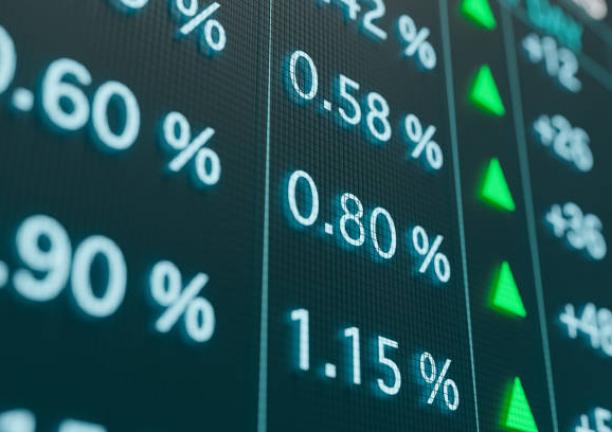Sustainable Bottom Line: Green bond funds have a place alongside an asset allocation to core sustainable bonds in diversified sustainable portfolios and even conventional ones.

Research and analysis to keep sustainable investors up to-date on a broad range of topics that include trends and developments in sustainable investing and sustainable finance regulatory updates, performance results and considerations, investing through Index funde and actively managed portfolios, asset allocation updates, expenses, ESG ratings and data, company and product news, green, social and sustainable bonds, green bond funds as well as reporting and disclosure practices, to name just a few.
Research and analysis to keep sustainable investors up to-date on a broad range of topics that include trends and developments in sustainable investing and sustainable finance, regulatory updates, performance results and considerations, investing through index funds and actively managed portfolios, asset allocation updates, expenses, ESG ratings and data, company and product news, green, social and sustainable bonds, green bond funds as well as reporting and disclosure practices, to name just a few.
A continuously updated Funds Directory is also available to investors. This is intended to become a comprehensive listing of sustainable mutual funds, ETFs and other investment products along with a description of their sustainable investing approaches as set out in fund prospectuses and related regulatory filings.

Sustainable Bottom Line: Turbulence around ESG investing since about 2022 has reduced the number of investment management firms offering focused sustainable mutual funds and ETFs.

Sustainable Bottom Line: Focused sustainable funds reached $367.7 billion in assets, with one new fund introduced, while only one of six selected sustainable indices outperformed.

Sustainable Bottom Line: Cash holdings in mutual funds and ETFs, conventional and sustainable, have implications for performance, liquidity management, and how investors experience market exposure.

Sustainable Bottom Line: Largest passive focused sustainable index funds outperformed active peers powered most recently by mega-cap technology stocks which have been crucial performance drivers.

Sustainable Bottom Line: Active funds showed improvements in H12025, especially in mid-to-small-cap funds, but index funds maintain long-term advantages, with sustainable options expanding yet limited.

The Bottom Line: Investors seeking to hire a financial advisor should interview multiple advisors before deciding and prepare a set of core questions in advance.
Free access to regularly updated original research and analysis focused exclusively on sustainable finance and investing, providing investors with the guidance needed to make informed investment decisions that align with their personal values and financial goals while also contributing to the advancement of positive long-term environmental and social outcomes.
By offering financial support for our current work, either in the form of a one-time or regular contributions, you help to defray some of the costs associated with conducting our research and analysis as well as to maintain the www.sustainableinvest.com website.
Helping us to expand our research capabilities and offerings over time to cover additional relevant topics geared to sustainable investors.
Sign up to free newsletters.

Sustainable Bottom Line: Green bond funds have a place alongside an asset allocation to core sustainable bonds in diversified sustainable portfolios and even conventional ones.

Sustainable Bottom Line: When markets are at historic highs, long-term investors should stick to diversified portfolios for the best financial outcomes with lower risk levels.
Research and analysis to keep sustainable investors up to-date on a broad range of topics that include trends and developments in sustainable investing and sustainable finance, regulatory updates, performance results and considerations, investing through index funds and actively managed portfolios, asset allocation updates, expenses, ESG ratings and data, company and product news, green, social and sustainable bonds, green bond funds as well as reporting and disclosure practices, to name just a few.
A continuously updated Funds Directory is also available to investors. This is intended to become a comprehensive listing of sustainable mutual funds, ETFs and other investment products along with a description of their sustainable investing approaches as set out in fund prospectuses and related regulatory filings.
Many questions have surfaced in recent years regarding sustainable and ESG investing. Here, investors and financial intermediaries will find materials that describe the various approaches to sustainable investing and their implementation. While sustainable investing approaches vary and they have thus far defied universally accepted definitions, many practitioners agree that they fall into the following broad categories: Values-based investing, investing via exclusions, impact investing, thematic investments and ESG integration. In conjunction with each of these approaches, investors may also adopt various issuer engagement procedures and proxy voting practices. That said, sustainable investing approaches will continue to evolve.
In addition to periodic updates regarding sustainable investing and how this form of investing is evolving, investors and financial intermediaries interested in implementing a sustainable investing approach will also find source materials that cover basic investing themes as well as asset allocation tactics.
Thoughts and ideas targeting sustainable investing strategies executed through various registered and non-registered sustainable investment funds and products such as mutual funds, Exchange Traded Funds (ETFs), Exchange Traded Notes (ETNs), closed-end funds, Real Estate Investment Trusts (REITs) and Unit Investment Trusts (UITs). Coverage extends to investment management firms as well as fund groups.